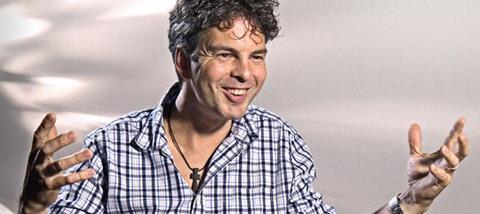
“… where Israel failed, Jesus succeeded, doing for her what she did not do. Jesus was Israel’s representative, God’s obedient son, who relived, reinterpreted, and fulfilled Israel’s story and destiny…”
True 2,000 years ago and, I submit, today also…
Some introductory guidelines… (if we differ on some issues, may we do so graciously in the light of Rom. 12:2)
- View Scripture the Jesus-way… We tend to come to the Bible with so many personal prejudices and worldly viewpoints, influenced by our culture, populist preachers, politics, etc. An American theologian used the parable of a rooster crowing each day at break of dawn. Eventually the rooster concluded that it was his crowing that ushered in each day with light and warmth. Obviously the rising sun had much more to do with it! Prof. Thomas Oden (1931-2016) of Drew University, was hugely influenced in the first half of his life by the very influential German existentialist Rudolf Bultmann (1884-1976), enthusiastically teaching his beliefs of ‘de-mythologizing’ Jesus and the Gospel accounts. One day a Jewish theologian friend confronted Oden and challenged him to give much more attention to the wisdom of the Scriptures and the historical church, including the Church Fathers. In a life-changing encounter with Christ and the Scriptures, Oden allowed the Bible to examine him, before he examined the Bible! He had a world-wide impact following that encounter! [‘A Change of Heart’: From Radical Leftist To Orthodox Theologian] We also must surely examine how we approach the Bible??
- In order to see God, we must start with Jesus. In response to his disciple Philip’s plea “Lord, show us the Father, and we will be satisfied,” Jesus responded “Have I been with you all this time, Philip, and you still do not know me? Whoever has seen me has seen the Father. How can you say, ‘Show us the Father’? Do you not believe that I am in the Father and the Father is in me?…'” (Jn.14:8ff/NRSV) We don’t start with studying ‘God’ like the Reformers and many ‘systematic theologians’: rather, we see the Father’s face in the human Jesus. ‘If you want to know who God is, look at Jesus. If you want to know what it means to be human, look at Jesus. If you want to know what grief is, look at Jesus. Go on looking until you’re not just a spectator, but you’re part of the drama which has him as the central character’ [N.T. Wright]. I.o.w. let the written and living Word shape the gospel we preach (Gal. 1:6-10).
- Jesus fulfilled Israel’s story, in himself and in his works. Israel demanded bread and died in the desert. Jesus denied himself bread and lived in his Father’s kingdom by faithful submission to his word: “My food is to do the will of him who sent me and to complete his work” (Jn. 4:34). Furthermore, he refused to do miracles ‘per se’ to prove his identity as the new Moses. He refused to use his son-ship to fulfill his messianic mission in a way that God had not spoken. And he refused to doubt Abba’s character, he simply believed and obeyed every word that came from God’s mouth (Venter p.74). Thus, Yeshua was more than a rabbi, a wise sage, a miracle-working prophet: he saw himself as Israel’s representative King, doing for her what she could not do for herself, i.e. atone for the sins of the world. His worldview, beliefs and aims pointed to his dark vocation of suffering love and sacrificial death, in the sure hope of glorious resurrection according to the promise of the Father.
- We must grasp Jesus’ Jewishness. Familiarity with Jesus’ Jewish roots and ‘2nd Temple Judaism’ is essential to our task. One could write volumes on this subject. Let me summarize. Historically there has been a 3-fold search for the ‘real Jesus’: (a) The Old Quest (1800-1906) (William Wrede; Albert Schweitzer; Rudolf Bultmann), b) The New Quest (1953-1980) (Ernst Kasemann and Gunther Bornkamm, following Bultmann’s ‘de-mythologizing of Jesus and the Gospels’). (c) The Third Quest (1980ff) (Bultmannian Robert Funk and the ‘Jesus Seminar’) (on the other hand, N.T. Wright; James Dunn; Craig Keener, et al; all orthodox Bible students building on the historical Jesus).
- Israel refused to believe God was with them without accompanying signs. Instead of obeying God’s test (Ex. 16:4ff), they tested God to see whether he would meet their expectations. They presumed on God to do miraculous signs to prove his presence and his love, by saving them from extinction. Jesus in turn trusted Abba’s promised presence, rather than signs and miracles. Unlike ‘my son’ Israel (Ex. 4:22-23), Jesus was absolutely secure in his identity as God’s unique son. He was the true son, the embodiment of the true Israel (Venter p. 78).
- Jesus was clear in his view of Israel’s preparatory role in God’s economy. (a) He saw and treated his followers, all who believed in him, as the renewed Israel of the New Exodus, the fulfillment of God’s chosen people ‘who will judge the 12 tribes of Israel’ (Mt. 19:28; Lk. 22:28-30). (b) He saw Torah as reinterpreted and ‘fulfilled’ in himself (Mt. 5:17). His teaching of ‘God’s kingdom’ was the Messianic fulfillment of Jeremiah’s ‘new covenant life’ (Jer. 31:31-34). (c) Jesus saw his body as the temple wherein God dwelt, ruled and forgave sins (Mk. 2:5-7). The temple of his body would be destroyed and rebuilt – i.e. he would die but rise again (Jn. 2:19-22). This was also prophetic of the destruction of the 2nd temple and its elaborate system under God’s judgment (Mk. 13:1-2). His kingdom community would be the new living temple (1 Cor. 3 and 6) (Venter p. 99). Thus there are no longer any ‘holy’ places and spaces, as in the holy land and the temple-remains in Jerusalem (btw, my wife and I were privileged to tour Israel some years ago with expert guides, a magnificent experience). These are all re-placed and re-spaced, literally, by Messiah and his new covenant people (note, in Gal. 6:16 all believers are hailed as ‘the Israel of God’). All this in order to fulfill the purpose of God to make all creation holy. [According to a recent news report, a Jewish orthodox minority, with the help of Texan Christians providing red heifers for sacrifice, are preparing to build the 3rd temple. Personally I stand on the NT revelation, fulfilling (not replacing) the OT. CS Lewis warned long ago, ‘One of the most cowardly things ordinary people do is to shut their eyes to the facts!’]
- Israel and Jesus came for all nations (Mt. 28:16-20). His community-movement was always missional, viz. to bring God’s kingdom to the whole world. This was always God’s purpose for Israel. But she failed in her missional calling, turned to the idolatry of the surrounding nations, and was consequently judged and exiled. Jesus was committed to re-instating God’s original purpose. He saw his followers as eschatological messengers proclaiming the Good News that fulfilled Isaiah’s ancient promise in Messiah, ‘Your God reigns!’ (Is. 52:7)
- Let me again warn against the misled ‘Hebrew Roots’ movement in my country and the West today. According to some HR followers, Jesus = route to Torah-life. I refuse to believe that Jesus is incidental rather than primary in God’s global economy (Col. 1-3; Heb. 1; etc). [Cf. my blog ‘The New Pharisees’/’Crazy Christians’ (Gal. 3:1ff), published 18/04/2020. It also deals with modern Israel’s spiritual hopes according to Rom. 11:1-16] Finally, a ‘must read’ is Heb. 3: the builder of the house (Jesus) is bigger than the house itself! (Moses)

In Part 2 of this conversation, we’ll look at NT Wright’s and Ian Paul’s contributions on this subject, both expert researchers with a high view of Scripture!
IS JESUS WORTHY? WHAT WOULD YOU SAY?





































